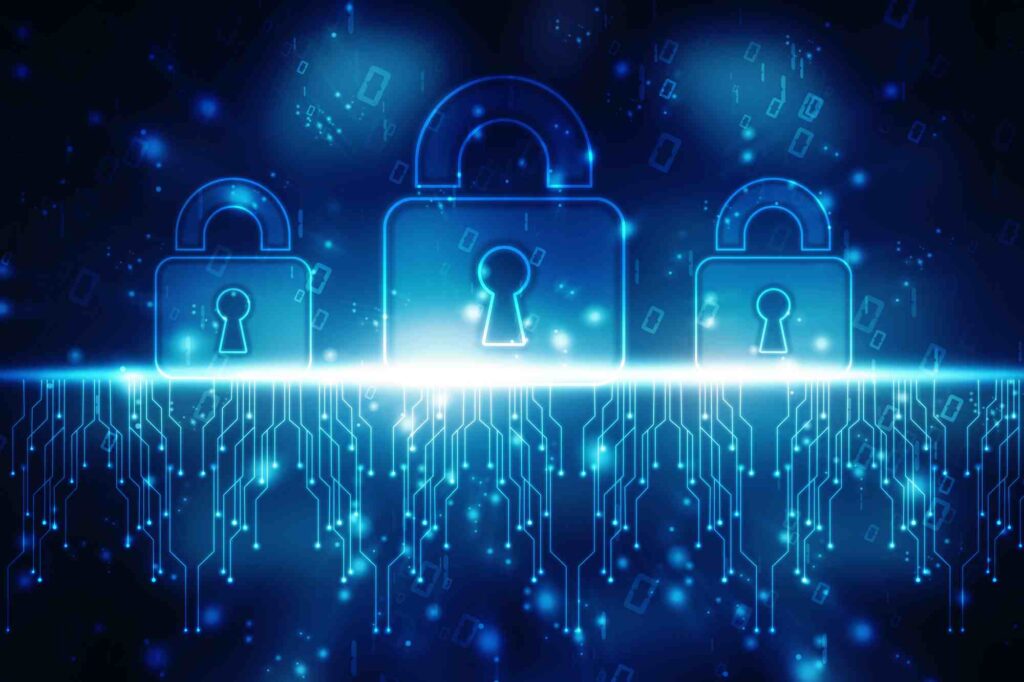Data protection, security, and privacy are related concepts that are often used interchangeably, however, there are some important distinctions between them. Data protection is safeguarding confidential data from intentional or unintentional destruction, loss, alteration, or unauthorized access. It encompasses the prevention, detection, and response to security breaches and includes both physical and digital measures to protect data. Data protection includes encryption, network security, and data backup services. For example, a data protection service can help organizations protect their data by encrypting it, setting up firewalls, and offering other security measures.
Security is the practice of protecting information and resources such as computer systems, networks, and data from unauthorized access, disruption, or destruction. It includes physical security, such as locks and guards, as well as digital security, such as antivirus software and firewalls. Security measures are designed to ensure that only authorized people can access data or systems and that any data shared is secure and not vulnerable to attack. Finally, privacy is the state of being free from unwanted public scrutiny or attention.
Others can determine what information you share and control how your personal data is used.
Best Way To Mobile Data Protection
Mobile data protection has become increasingly important as more and more people rely on their smartphones and other mobile devices to access the internet and store sensitive information. With the prevalence of cyber-attacks, it is essential to protect your device from malicious actors. Fortunately, there are a few steps you can take to ensure that your data is safe and secure. The first step in protecting your mobile data is to use a secure password for your device. It is important to choose a password that is difficult to guess and includes a combination of upper and lowercase letters, numbers, and symbols.
Ensure that your password is not compromised by regularly changing it. Another important step in mobile data protection is to install reliable antivirus software. Antivirus software can detect and remove malicious software, such as viruses, worms, and Trojans before they can cause damage to your device. Free antivirus software for PC is available and can be used to protect your mobile device. It is also important to ensure that all of your device’s software is kept up to date. Software updates can contain security patches that protect your device from potential vulnerabilities.
Data Protection And Privacy Laws
Data protection and privacy laws are important for protecting an individual’s personal information from being used in unethical ways. Countries vary in the data protection and privacy laws they have, but in general, these laws aim to keep individuals’ personal information from being misused or shared without their consent.
Online storage is increasingly making our information more important. Every time we use a website, sign up for a service, or download an app, we provide personal information that is vulnerable to misuse. Data protection and privacy laws aim to protect this information, ensuring that it is not accessed or used in ways that are not authorized by the individual.
Data protection and privacy laws set out the rules for how companies must handle an individual’s personal information. These rules can include requiring companies to obtain consent from an individual before collecting, using, or sharing their data, and setting out restrictions on how companies can use an individual’s data. Data protection and privacy laws also provide individuals with certain rights, such as the right to access and correct their data, and the right to have their data deleted. In addition to data protection and privacy laws, individuals can also protect their data by taking precautions.
Enterprise Data Protection Strategies
Access Control: Access control is a key element of any data security strategy. We should implement access control measures to grant only authorized users access to data and block unauthorized access. This can include the use of authentication and authorization protocols such as single sign-on (SSO), multifactor authentication, and role-based access control.
Encryption: Encryption is a powerful tool for protecting sensitive data. Encryption algorithms can be used to render data unreadable to unauthorized parties, and encryption keys can be stored in a secure location to ensure that only authorized personnel can access the data.
Data Loss Prevention (DLP): DLP is a strategy used to monitor and protect data at rest and in transit. DLP solutions can be used to detect data leakage and unauthorized access, as well as to control the flow of data.
Data Backup and Recovery: Data backups are an essential component of any data security strategy. We should implement automated data backups to ensure that the data is secure and can be recovered in the event of a disaster.
Enterprise data protection strategies: By monitoring and auditing data access, usage, and storage, organizations can ensure that their data is secure and kept confidential. Data monitoring and auditing allow organizations to detect and respond to any suspicious or unauthorized activity.
Mobile App Development: Ensuring Robust Security for Mobile Apps


